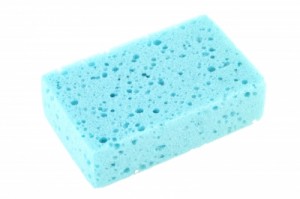How do you know if you’re absorbing vitamin B12? Just because you eat plenty of foods that are rich in vitamin B12 (cobalamin), that doesn’t mean you’re getting all the B12 you need for great health. Sometimes, things happen that interfere with your ability to digest vitamin B12, creating an obstacle to absorbing vitamin B12 naturally. This happens more often than you realize…
Why you need to take vitamin B12
You may be asking yourself, “Doesn’t my body produce vitamin B12 on its own? It makes lots of other vitamins.”
The short answer is, “No.” While you are able to store plenty of vitamin B12 in your liver for years to come, your body relies on a constant influx of vitamin B12 from dietary sources like lean beef, chicken, fish, and dairy foods, which it then uses to sustain energy levels, maintain a healthy nervous system, and regulate hormones.
The long answer is more complicated. This constant replenishment of vitamin B12 into your blood supply relies on intrinsic factor for absorbing vitamin B12 and carrying it through the digestive system. As long as you are always able to break down vitamin B12, then you are all right. However, if you are among a large percentage of people who cannot produce the intrinsic factor enzyme, then you must supplement constantly with vitamin B12 supplements, in order to prevent vitamin B12 deficiency.
What is vitamin B12 deficiency?
Whenever you’re not absorbing vitamin B12, you’re drawing it from your liver. Eventually, this store of essential vitamin B12 runs out, and you begin to notice the effects of vitamin B12.
The initial symptoms of vitamin B12 include:
- Severe fatigue
- “Brain fog” disorientation
- Memory loss
- Depression
- Anxiety
- Painful tingling and numbness in the extremities, such as hands and feet
- Sore, red tongue
Over time, if untreated, vitamin B12 deficiency can lead to severe neurological damage and a gradual depletion of red blood cells. Also, since vitamin B12 helps to regulate homocysteine, a hormone linked with heart attack and stroke, your risk for cardiovascular disease may increase. In rare occasions, infants solely breastfed by vegan mothers not absorbing vitamin B12 show signs of failure to thrive and feebleness.
What causes vitamin B12 malabsorption?
Many different factors can keep you from absorbing vitamin B12 naturally from foods.
They include:
- Family history for pernicious anemia
- History for autoimmune disorder, such as fibromyalgia or celiac disease
- Damage to the digestive system caused by acid reflux, vomiting, or diarrhea
- Gastrointestinal disorders, such as Crohn’s disease or ulcerative colitis
- Gastrointestinal surgery, such as bariatric surgery or ileostomy
- Medications, such as PPIs for GERD, or metformin for diabetes
- Old age
- Alcoholism
Absorbing Vitamin B12, a Metabolic Gastrointestinal Journey
Treating vitamin B12 malabsorption
If you’re not absorbing vitamin B12, then it’s important to understand which kinds of vitamin B12 supplements to take, and which ones to avoid.
Most likely, your doctor will prescribe vitamin B12 shots. These are helpful, as they dispense vitamin B12 directly into the bloodstream, bypassing the need for absorbing vitamin B12 in the stomach.
Certain side effects of vitamin B12 shots are, obviously, pain, as cobalamin requires insertion into the thick fleshy tissue behind the thigh. Sometimes, bruising may occur.
Vitamin B12 shots are also often impractical. In most states, vitamin B12 injections require a prescription, and doctors are sometimes hesitant to prescribe enough monthly doses to relieve all the symptoms of vitamin B12 deficiency.
Instead, many patients opt to supplement with extra vitamin B12 on their own. Certain inexpensive over-the-counter (OTC) vitamin B12 supplements are helpful for “topping off” vitamin B12 between shots. For optimum health and relief from symptoms, find non-dietary vitamin B12 supplements that distribute cobalamin directly into the bloodstream, not through the digestive system.
Please tell us…
Do you have any questions or suggestions? Please leave your comments below.
Share with your friends!
If you found this article helpful, then please share with your friends, family, and coworkers by email, Facebook, or Google+.
Like this? Read more:
Getting Enough Vitamin B12? Three Reasons Why You Might Not Be
Vitamin Deficiencies can drive you Crazy- Seriously! Part 1
Images courtesy of FreeDigitalPhotos.net


